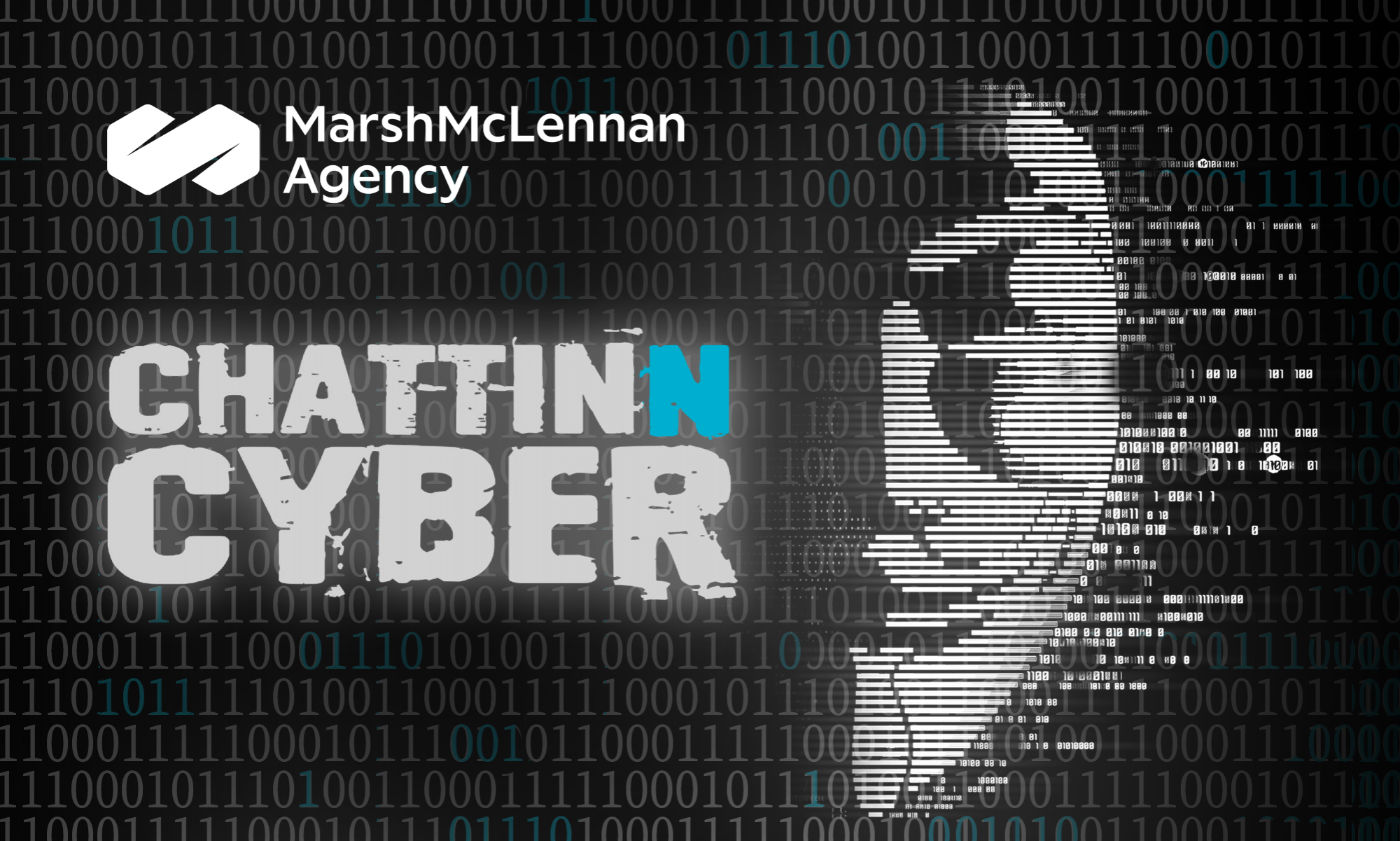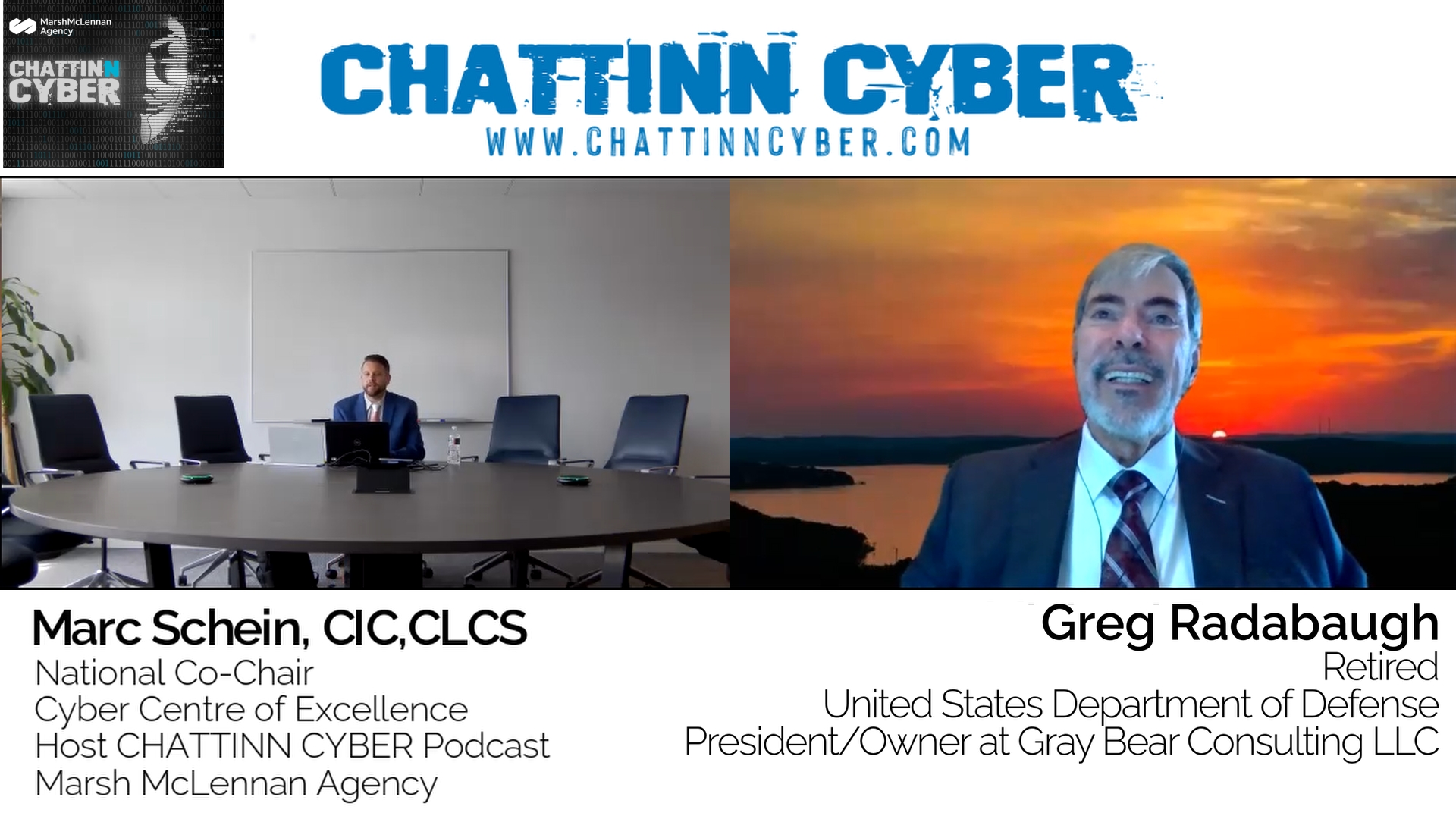Podcast: Play in new window | Download (Duration: 30:13 — 41.5MB)
Subscribe: RSS
In this episode of CHATTIN CYBER, Marc Schein interviews Gregory Radabaugh about his wide range of experience in the military and information security, what the Russian-Ukrainian war illuminates about information security, and the essential practices civilians and security forces must equally adopt to strengthen cybersecurity.
Retired Air Force veteran of 30 years, Greg comes with a repertoire of wealth that ranges beyond overseas reconnaissance missions. He has experience as a DOD civilian, a Defence Intelligence Agency analyst, senior Information Operations planner for the Air Force ISR agency (Intelligence Surveillance Reconnaissance), Director of the Joint Information Operations Warfare Centre, and many high-importance controlled defence and intelligence roles. But after finally retiring from the Department of Defense after 44 years, Greg has founded his own consulting company, Greg Bear Consulting.
With the ongoing Russian-Ukrainian war always keeping world tensions high, Greg suggests you give “Unrestricted Warfare by Colonel Qiao Liang and Colonel Wang Xiangsui” a read for learning in depth about permanent warfare and the absence of a difference between civilian and military targets in the Ukraine-Russia war. Noting from the war updates, Greg shares that although Russia seems to be focussing on justifying their actions to their internal audience, making them see that all is being done to protect them, Ukraine is focussing on the external audience, primarily the West, trying to gain support from the US, NATO, and others providing material, financial, and medical support. He also discusses how both the countries are gathering and making use of commercially available data for warfare – from tracking locations, to cellphone ranges, and a whole lot more. Everything happening in the war is striking from an information perspective.
The civilian sector, he adds, must prepare for war at this point as they could be used to incite or escalate conflict. There could be Denial Of Service attacks, deception, and other planned operations to impact the military by attacking people relevant to its personnel. Families of military personnel are especially targeted by these attacks. This is a side most people aren’t prepared for.
In conclusion, Greg shares that the civilian private sector needs to start thinking about security the same way the military does – for operational security. Using mobile phones and cameras in essential meeting places, not considering the secondary and tertiary access points in places, are a couple of the many things that go unnoticed. For more about it, tune in to this episode with Greg!
Highlights:
“The Western concepts of the law of armed conflict relying on Westphalian concepts of chivalry, interior, and territorial integrity, and what constitutes an armed attack don’t apply to our adversaries and potential adversaries in the information environment.”
“Think about how to provide operational security to your business. And then think about how do you shut down our second and tertiary information leakages and then decide, how do I mitigate this threat by doing things, for example, having an offline backup of my network, or having a secondary network that’s offline that can go online immediately, if your primary one goes down?”
“A greater awareness of these operations in the information environment is crucial to private sector success of industrial control systems, security is going to be absolutely critical to maintaining our first world environment that we live in and enjoy today.”
Time-Stamps:
[00:40] – Greg’s early life and founding Greg Bear Consulting [05:29] – Where to connect with Greg
[06:26] – What’s happening with the Russian-Ukrainian war?
[15:19] – Should the civilian sector prepare for a conflict at this point? [20:42] – What can you do to protect yourself from cyber attacks?
Connect with Greg:
Website:
https://www.af.mil/About-Us/Biographies/Display/Article/108843/gregory-c-rada baugh/

